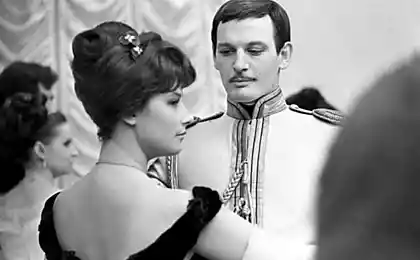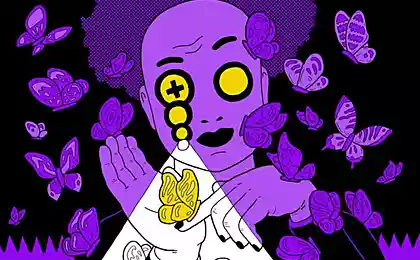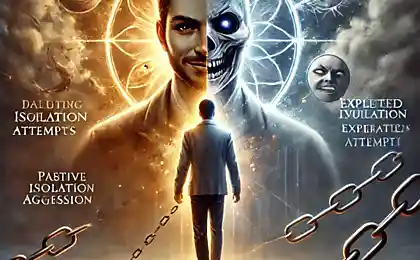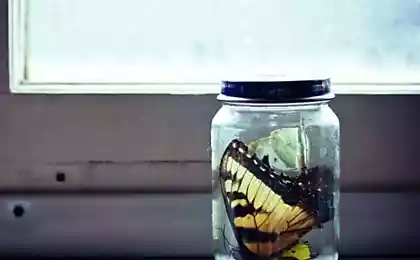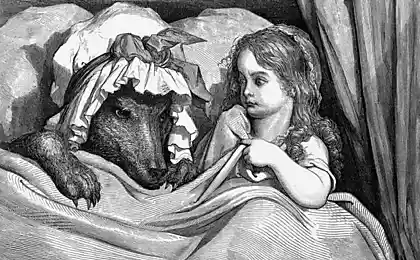451
Trouble-free children VS Problem: How do we ourselves cultivate children's problems
In kindergarten the focus of educators focused on "badly behaved" children. Smooth – what will happen to them, they will always find something to occupy yourself, look good kids. Family will develop if there is not enough.
The school focuses on the weak students, troubled students. Why bother with hassle-free, they're fine. Yeah, could get more knowledge could do more to develop, but there are priorities.
The priority is always the one who creates problems. So arranged.
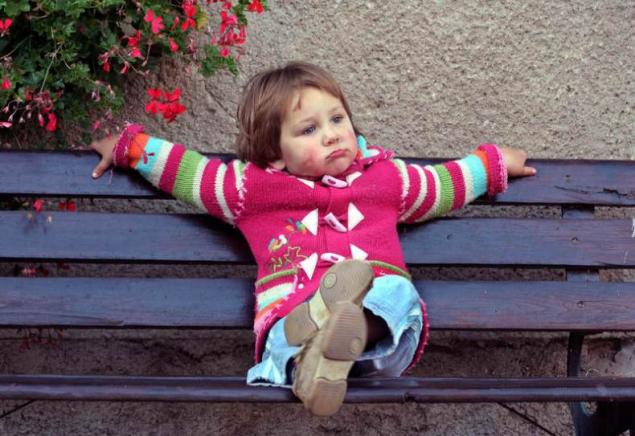
In the family – always more attention is paid to problematic child. It requires attention, worried about him, worried about him. A strong child could do it himself, he's good, he's smart, he understands.
All children need attention. It is an axiom.
It turns out, we ourselves cultivate children's problems. To be troubled means to get more attention – so why wouldn't they be? The vector of attention to the child does not matter plus or minus – is not so important when there is a lack of this attention. The problem to be, to some extent, beneficial, as strange as it may sound.
Children are not blind, and if they are from infancy to see what more will be the one complexity – in some children these difficulties will. When we are talking about a limited resource (attention), all the ways are good to the resource to get.
Adults may think that this perverse logic, but, alas, this is the logic of child survival. And no amount of explaining that to be good is better than bad, it's not going to help.
Kids don't listen to our words, they look like really happening. And what do they see? Good to be not profitable – you lose the resource you need. The most common example is when it is advantageous to be sick. Because then you care about.
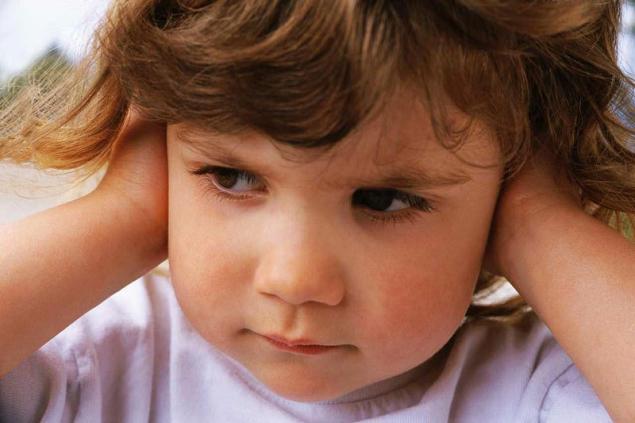
The same thing happens with children's problems. They message to the child about what he lacks. What exactly is not enough – we need to understand. Children's lies, theft, disobedience, and problems at school there. They are not doing it on purpose or consciously, to achieve something, not at all. Somewhere deep postponed that attention is easiest to draw, creating problems to others or yourself. While you're right – no one sees you. And that's what we adults transmit to children. Themselves.
Perhaps someone will now ask me: are you suggesting all the sick, homeless, weak, not viable to the boat, and let them handle it how they want? I will answer in advance, then to not return to the question: no, I do not suggest that. No, I do not even think. No, this is not the way. Anyway – no, that's all.
But I want to at least occasionally, at least sometimes, we thought about what happens to strong, smart, healthy. Yet in the twenty-first century we do not have such a small resource, so it was only and exclusively on the weak and problematic.
This topic is relevant to adults, but it is easier to consider it in the context of children. In addition, adults are grown up children.
So what happens with a hassle-free children while we're troubled or your business?
One option is to become a problem, as I said before. The difficulties appear almost out of thin air. Someone serious, someone not. We wonder what happened. But nothing happened, just attentive child finally understand how the world works and how to get your piece of the resource. Someone earlier, someone later. And either get, or you don't.
Another option – nothing happens. He handles himself. One. Without our help. He is learning to do without attention, without having to see his needs.
The result?
All this we see then on the output have a strong trouble-free child. All this could not be.
In my work, I often have to see how much we do not doda strong children. And how they need it while they still have hope. Then stop. Prefer to rely solely on himself and so all his life. How many times we leave them alone with the issues, problems, fights and misunderstanding, even no understanding of what happens to them. And exactly how this impacts on their future life – this is when working with adults.
It turns out reverse discrimination: a strong almost no chance for help until all involved are weak. And he needs not less, but he is stronger. From time to time.published
Author: Anna Yasovskaya
P. S. And remember, just changing your mind — together we change the world! ©
Source: www.facebook.com/Sattvamama/posts/1885763614998376:0
The school focuses on the weak students, troubled students. Why bother with hassle-free, they're fine. Yeah, could get more knowledge could do more to develop, but there are priorities.
The priority is always the one who creates problems. So arranged.

In the family – always more attention is paid to problematic child. It requires attention, worried about him, worried about him. A strong child could do it himself, he's good, he's smart, he understands.
All children need attention. It is an axiom.
It turns out, we ourselves cultivate children's problems. To be troubled means to get more attention – so why wouldn't they be? The vector of attention to the child does not matter plus or minus – is not so important when there is a lack of this attention. The problem to be, to some extent, beneficial, as strange as it may sound.
Children are not blind, and if they are from infancy to see what more will be the one complexity – in some children these difficulties will. When we are talking about a limited resource (attention), all the ways are good to the resource to get.
Adults may think that this perverse logic, but, alas, this is the logic of child survival. And no amount of explaining that to be good is better than bad, it's not going to help.
Kids don't listen to our words, they look like really happening. And what do they see? Good to be not profitable – you lose the resource you need. The most common example is when it is advantageous to be sick. Because then you care about.

The same thing happens with children's problems. They message to the child about what he lacks. What exactly is not enough – we need to understand. Children's lies, theft, disobedience, and problems at school there. They are not doing it on purpose or consciously, to achieve something, not at all. Somewhere deep postponed that attention is easiest to draw, creating problems to others or yourself. While you're right – no one sees you. And that's what we adults transmit to children. Themselves.
Perhaps someone will now ask me: are you suggesting all the sick, homeless, weak, not viable to the boat, and let them handle it how they want? I will answer in advance, then to not return to the question: no, I do not suggest that. No, I do not even think. No, this is not the way. Anyway – no, that's all.
But I want to at least occasionally, at least sometimes, we thought about what happens to strong, smart, healthy. Yet in the twenty-first century we do not have such a small resource, so it was only and exclusively on the weak and problematic.
This topic is relevant to adults, but it is easier to consider it in the context of children. In addition, adults are grown up children.
So what happens with a hassle-free children while we're troubled or your business?
One option is to become a problem, as I said before. The difficulties appear almost out of thin air. Someone serious, someone not. We wonder what happened. But nothing happened, just attentive child finally understand how the world works and how to get your piece of the resource. Someone earlier, someone later. And either get, or you don't.
Another option – nothing happens. He handles himself. One. Without our help. He is learning to do without attention, without having to see his needs.
The result?
- Difficulty in interpersonal relationships in adulthood.
- The inability to build relationships.
- Lack of understanding of their own needs.
- Cancel yourself for the sake of another.
- Attempts to get the attention of the bypass.
- Manipulation.
All this we see then on the output have a strong trouble-free child. All this could not be.
In my work, I often have to see how much we do not doda strong children. And how they need it while they still have hope. Then stop. Prefer to rely solely on himself and so all his life. How many times we leave them alone with the issues, problems, fights and misunderstanding, even no understanding of what happens to them. And exactly how this impacts on their future life – this is when working with adults.
It turns out reverse discrimination: a strong almost no chance for help until all involved are weak. And he needs not less, but he is stronger. From time to time.published
Author: Anna Yasovskaya
P. S. And remember, just changing your mind — together we change the world! ©
Source: www.facebook.com/Sattvamama/posts/1885763614998376:0



